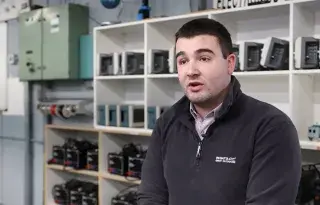BEng in Electrical and Electronic Systems

Search to find a different course
Course Overview
This course equips students with the practical skills required to be a practical electronic or electrical engineer. Students study the basic concepts in electrical and electronic systems, the equipment used, and the practical applications of these to innovate solutions for local and international industry in the areas of Electrical Engineering, Electrical Services, Control, Automation, Energy Production and Renewable Technologies.
Electronics or automation is required to add functionality to an engineered product. Keeping automation safe, controlled and efficient is the aim of the electronic engineer. This course prepares graduates for immediate application in some of the world's largest companies, including local and regional companies.
What makes this course different
Electrical and Electronic Engineering
This course mixes an understanding of electronic engineering, microcontrollers, PCB design and prototyping and controls with electrical engineering knowledge. These two disciplines are critical to integrating future grid changes and also communicating and controlling devices globally.
Excellent Career Prospects
100% of graduates are in employment after 6 months of graduating and 100% of graduates said their degree was essential for that job role (DkIT/ HEA graduate survey).
Engineers Ireland Accreditation
This course has Engineers Ireland accreditation to Associate Engineer level, A.Eng., which is internationally recognised.
Understanding the Industry
Electronics is the mechanism of sensing and control, and is also the driver behind the User Interface which is becoming more present in our world, from phones to touch screen vending to contactless payments and smart wearables. It may be thought that software drives these systems but electronic controllers are programmed to make decisions without reference to software or external communications links. A good example is a wind turbine which can operate autonomously for long periods as long as electricity is connected, or a car's ECU or infotainment systems, many of which still do not have internet connectivity.
Electronics are everywhere and it is powered by electricity. Understanding and being able to work with these two sectors is fundamental to the development of a technological future. Driving how this will develop is the EU "Chips Act" which will guide semiconductor technology development.
Career Opportunities
There are over 60,000 people involved in the Electronic/Electrical area in Ireland, designing, testing, manufacturing, selling, installing, and maintaining equipment. Almost every major technology company in the world has a presence in Ireland including Apple, Intel, IBM, Amazon, Google, Controlsoft, Irish Rail.
Future Careers:
- ECAD Technician
- Control and Instrumentation Engineer
- Electrical Engineer
- Electronics Engineer
- Installation and Diagnostic Engineer
In these areas:
- Aerospace Engineering
- Telecommunications
- Computer Engineering
- Control Engineering
- Renewable Energy
Graduates work at
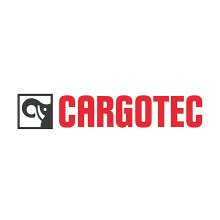


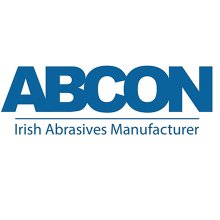
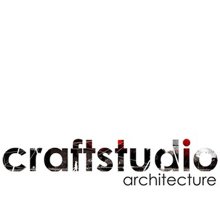
Course Delivery and Modules
There are on average 24 contact hours per week for each stage of the course of which approximately 60% is practical with the remaining 40% consisting of classroom lectures.
This curriculum applies to academic year 2025-26 only.
Semester 1
- Mathematics 1
- Analogue Electronics
- Electrical Circuits
- Electronic Project
- Electronic and electrical CAD
- Microcontroller programmming
Semester 2
- Electrical Principals
- Digital Electronics
- Engineering Science 1
- Industrial Automation 1- Electrical control circuits and PLC programming
- Mathematics Calculus - complex numbers
- Microcontroller interfacing
Semester 1
- Electrical Engineering
- Mathematics - Circuit Analysis
- Measurement project
- Microcontroller systems
- Sensors
- Signal Conditioning
Semester 2
- Computerised instrumentation
- Electrical machines
- Group microcontroller & networking project
- Industrial automation 1 - electrical control circuits and PLC programming fundamentals
- Mathematics - signals and systems
- Microcontroller architecture
Semester 1
- Applied Control Engineering
- Electrical Engineering
- Electrical Machines
- Electronic Product development
- Embedded systems design
- Project development year 3
Semester 2
- Power electronics
- Computer networks and IoT
- Industrial studies
- Low voltage and distributed energy systems
- Mathematics; discrete time signals and systems
- Project year 3 implementation
Professional Accreditations
Engineers Ireland Accreditation: This course is recognised by Engineers Ireland as meeting international standards commensurate with Associate Engineer (A. Eng) standing. Engineers Ireland’s accreditation is an objective evaluation and approval of third level engineering programmes, ensuring that they meet international standards, the needs of the engineering profession and broader responsibilities to society, environment and economy.
Accreditation is a periodic assessment of a programme of engineering education against accepted standards. The hallmark of a professional engineer is the ability to apply the learning outcomes gained during study to real world situations. These are assessed as working experiences or learned competences.
Graduates of accredited programmes, at the appropriate standard, may go on to achieve one of the professional titles of Chartered Engineer, Associate Engineer and Engineering Technician. Find out more about the Engineers Ireland Accreditation Criteria.
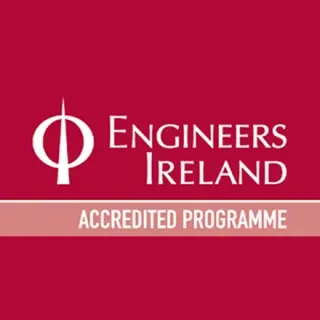
Education Progression
On completion of this course, students will be eligible to transfer to Year 4 of the Level 8 course: Bachelor of Engineering (Honours) in Electrical and Electronic Engineering or the BSc (Hons) in Engineering Entrepreneurship Add-on. (This will be subject to student numbers. Where places are limited, offers will be linked to the final average mark in 3rd year achieved, a minimum of 50% being required.)
BEng (Hons) in Electrical and Electronic Engineering
BSc (Hons) in Engineering Entrepreneurship
Fees and Funding
Please find information on fees and funding here.
Entry requirements
Standard entry requirements apply. There are no special entry requirements for this course.
- Standard Requirements for Leaving Certificate Applicants
- Standard Requirements for UK/NI Applicants
- Standard Requirements for QQI-Further Education Applicants
Recent CAO points
How to apply
Apply on CAO
All standard entry first-year applicants must apply for entry through the CAO. See Important application dates for CAO and information for specific applicant types below:
Advanced Entry & Transfer Applications
Advanced Entry is for applicants who have previous educational achievements and/or work experience and want to be considered for direct entry into year 2, 3, or 4 of a course. This includes students looking to transfer to DkIT from another Higher Education provider.
International Application (non-EU)
International Applicants (not from or living in the EU) can apply through an agent or directly to DkIT to study this course.
Ask us a Question
If you have a question about the BEng in Electrical and Electronic Systems please ask it below and we will get back to you.
Disclaimer: All module titles are subject to change and for indicative purposes only. All courses are delivered subject to demand and timetables are subject to change. Elective Module options will only run subject to student numbers. The relevant Department will determine the viability of each elective module option proceeding depending on the number of students who choose that option. Students will be offered alternative elective modules on their programme should their preferred elective option not be proceeding. Award Options for Common Entry Programmes: The relevant Department will determine the viability of each award option proceeding depending on the number of students who choose either option. If the numbers for one of the Award options exceed available places, students for this option will be selected based on Academic Merit (highest grades).
